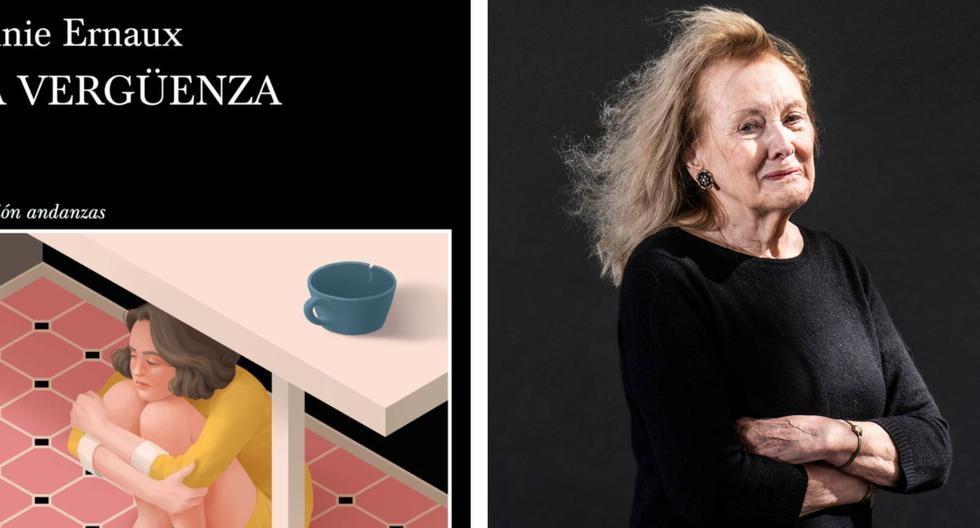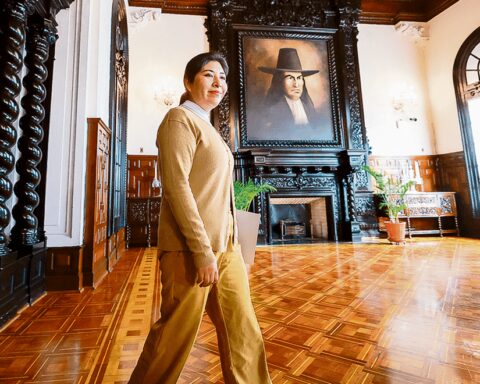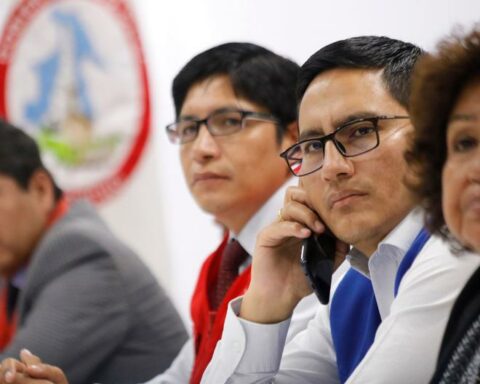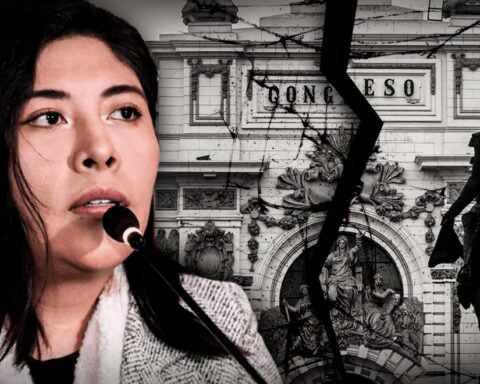One morning when little Annie returns from mass, her father tries to kill her mother with an axe. She hides in her room, but when she hears her mother’s screams, she comes down from her and finds her held by the man who at that moment has become a savage. This is the opening scene of “La embarrassment”, a short novel from the 2022 Nobel Prize for Literature, annie ernaux (France, 1940).
WATCH THIS: Annie Ernaux: Get to know the books of the Nobel Prize for Literature that arrive in Peru
FRAGMENTS. A powerful and brutal scene that puts the reader in expectation of what will happen next. What Ernaux does in the following pages is not to reconstruct that moment and the causes that generated it —in that sense, he avoids the classic and complacent narration—, but what it represented for her and how it affected his childhood, above all. This justifies the reason for the fragmentation of the entire story. It is the memory of a woman who tries to find moments in her existence that, like the violent scene at the beginning, represent forms of shame.
The first-person story shows us a woman who narrates her own writing process, what her findings mean and how difficult it is for her to locate them in the story: a review of newspapers of the time, scenes from the religious school, a trip with her father , prohibited topics for young ladies, among others. It is known that Ernaux She is an autobiographical writer (since 1984, with “El lugar”), so her readers infer that they are in front of a testimony. This kind of writer-reader contract is reinforced when the narrator presents her own convictions to the reader. “I don’t want to write any story, because that would mean creating a reality instead of looking for it. And neither do I want to limit myself to gathering and transcribing the images that I keep in my memory, but to treat them as documents that will clarify one another ”, writes the Frenchwoman.
WATCH THIS: Annie Ernaux says she was “very surprised” to find out she won the Nobel Prize for Literature
THE AXIS. A common feature in his narrative is that this initial moment of his stories becomes transcendental and revealing, in addition to functioning as the axis around which memories of him orbit. The protagonist, in this novel, becomes aware of what her shame means and advances in the search for moments linked to her, such as the breach of a religious precept. The same thing happens in her other books such as “A Woman”, where she recounts the death of her mother; “Memory of a Girl”, where she recounts how she lost her virginity; “The Event”, where she narrates her abortion experience.
Ernaux ponders the reflection around a fact and prioritizes it to the detriment of descriptions of scenarios or dialogues. Her most moving moments are where she disinhibits any intention of cloaking herself in fiction and she is honest to the core. “Our memory is found outside of us, in a gust of rain or in the smell of the first autumn campfire, in all those elements of nature that ensure, with their return, the permanence of the person”, she writes.
A separate point to highlight is the feminist look of its protagonist. She is not an activist, of course she is, who looks at her reality from a judgmental perspective of the macho and misogynistic world. It uses the innocent look of a girl or a young woman who, as she relates to new experiences, understands how cruel the world is with women. These revelations that for her pass through simple analogies are truths that for the reader represent powerful and questioning truths. In this sense, Ernaux is an acute observer of the changes that are taking place regarding roles and genders.
I don’t think it’s one of the best books by the French woman, but its fragmentary nature turns the story into a kind of diary that, with the great prose of the writer, moves us and makes us sick.








